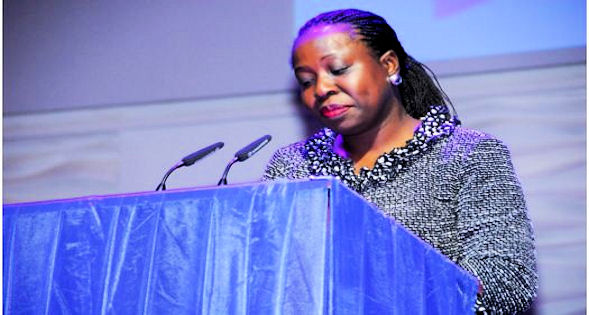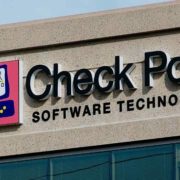Main One Cable one year after the start-line
By MARTIN EKPEKE
In 2010, Main One and Glo1 submarine cables berthed on the shores of Lagos, Nigeria to provide the much needed internet capacity between Europe and the West Coast of Africa. But 12 months on, and owing to a mix of factors, the capacity providers still have a long way to meeting their core objectives of expanding access and driving down the cost of bandwidth connectivity.
Access has been slowed by the twin evil of low presence of terrestrial backhaul routes to connect to the sea cables and a paralyzed electricity system that makes the delivery of access very costly to end-users.
However, bandwidth is here and the prospect for a bandwidth surge has never been this high for a continent considered as the most unconnected on the globe. As one report puts it: “Africa’s total international Internet bandwidth reached 520 Gbps in December 2010, a 78% increase compared to 2009. This was split between North Africa, which increased by 56% to reach 312 Gbps, and Sub-Saharan Africa which increased by 125% to reach 208 Gbps.
“This bandwidth growth is clearly the result of the arrival of multiple, competing submarine cables last year. This has seen dramatic increases in countries connected to submarine cables for the first time: Comores Telecom for example, which was connected to EASSy in July last year, increased its Internet bandwidth from 12 Mbps in 2008 to 180 Mbps by December 2010. Meanwhile, Mauritius Telecom which was first connected to SAFE since 2002 and has also invested in the EASSy, LION, EIG, and WACS cables, initially activated four STM-1 circuits (622 Mbps) on EASSy and had increased its Internet bandwidth from 3 Gbps to 4.8 Gbps by December 2010.
“Growth has also been driven by the completion of cross-border backhaul routes from landlocked countries. The volume of cross-border traffic backhauled to submarine cables doubled again for the second year running, reaching almost 20 Gbps in December 2010. There has also been significant progress in the expansion of national fibre backbones delivering greater bandwidth to cities and towns inland from the coast.
“In the first quarter of 2011, a total of 45,338.7-kms of network was added or edited in the Africa Telecom Transmission Map, bringing the total inventory of terrestrial transmission network to 645,938.2-km. By comparison, in July 2010 this stood at 585,471-km and in July 2009 at 465,659-km.”
In the West African axis, both Main One and Glo 1 lead the race for broadband connectivity. While Main One cable was snaked from Portugal through Ghana to Nigeria, Glo1 cable was laid from United Kingdom through Spain, Portugal, Morocco and Ghana to finally enter Nigeria through the Alpha beach in Lagos.
For Main One, which recently clocked one year in the market, its $250 million cable has been able to deliver affordable and reliable access to drive international communications, reduce the cost of doing business, create new jobs and stimulate favorable conditions for faster economic growth. The entry of the 7,000-kilometre cables has also provided customers the flexibility of choice between fiber optic cable and satellite connectivity which was hitherto the only available source of internet communications.
Entry of Main One Cable into Nigeria with capacity in the realm of 1.92 terabits which connects many West Africa countries ends the sole dominance of SAT-3 cable that was expensive and provided less expansive access, it also has more than five times the capacity of the old SAT-3.
According to Chief Executive Officer of Main One Cable Company, Ms. Funke Opeke, the cable has helped to create new service-oriented business in the ICT sector such as regional service call centres and internet-based commercial and financial services including e-payment services and money transfers.Reviewing Main One’s performance in the last one year following its successful commencement of operations in July 2010, an elated Opeke stated that Main One was proud to be West Africa’s first wholesale broadband company and driving the broadband revolution across the sub region.
“Main One has transformed the telecommunication landscape of Nigeria and West Africa. We have done a great job of maintaining an extremely reliable network; a network which has remained 100% available to our customers since we launched a year ago”, said Opeke.
The benefit of Main One’s cable has been felt in several sectors including education, health and entertainment to help drive growth and create job opportunities in some of Africa’s closed market. Also, it has helped to expand networks, cut the cost of communication and fuel explosive growth in mobile broadband in Africa within one year of operation, particularly Nigeria, which has overtaken South Africa to become the continent’s largest mobile telecom market.
To sustain quality delivery, Main One Cable Company signed partnership agreements with vendors like Cisco, Seacom, Global Crossing among others in its quest to ensure that customers enjoy access to quality telecommunication at cheaper rates.
Analysts have estimated fiber broadband subscriptions to double by the end of 2011 because the number of customers using high bandwidth services such as internet video and online gaming is growing around the world. As a result, IP traffic generated by these services is putting service providers under pressure to handle bandwidth demand.
For some experts, bandwidth supply to meet growing demand in Africa’s increasingly sophisticated market can be met by a hybrid solution approach such as the iWayAfrica Nigeria’s FiberSAT, an innovative combination of iWay VSAT broadband service and Fiber optics technologies designed to help provide non-stop bandwidth supply to support mission critical applications.
Africa’s Digital Divide….Source: MainOne @ the 4th IT Edge Convergence Forum, November 2010
At a ceremony in Lagos to mark the one year anniversary of Main One in Nigeria, immediate past Executive Vice Chairman of the Nigerian Communications Commission (NCC), Engr. Ernest Ndukwe, tasked the Nigeria government on the need to formulate a broadband policy on broadband deployments in Nigeria. He said government can achieve results with this policy through the support of the private sector and that by 2020; Nigeria should be able to interact with the rest of the world at the same speed.
Also at the event in Lagos, the current Executive Vice Chairman of the NCC, Dr. Eugene Juwah, who was a special guest explained that there are efforts geared towards the national broadband initiatives designed to expand “the connectivity infrastructure within our local geographical spread and ensure maximization of traffic movement between international and national routes on one hand, and within the local networks on the other.”
































